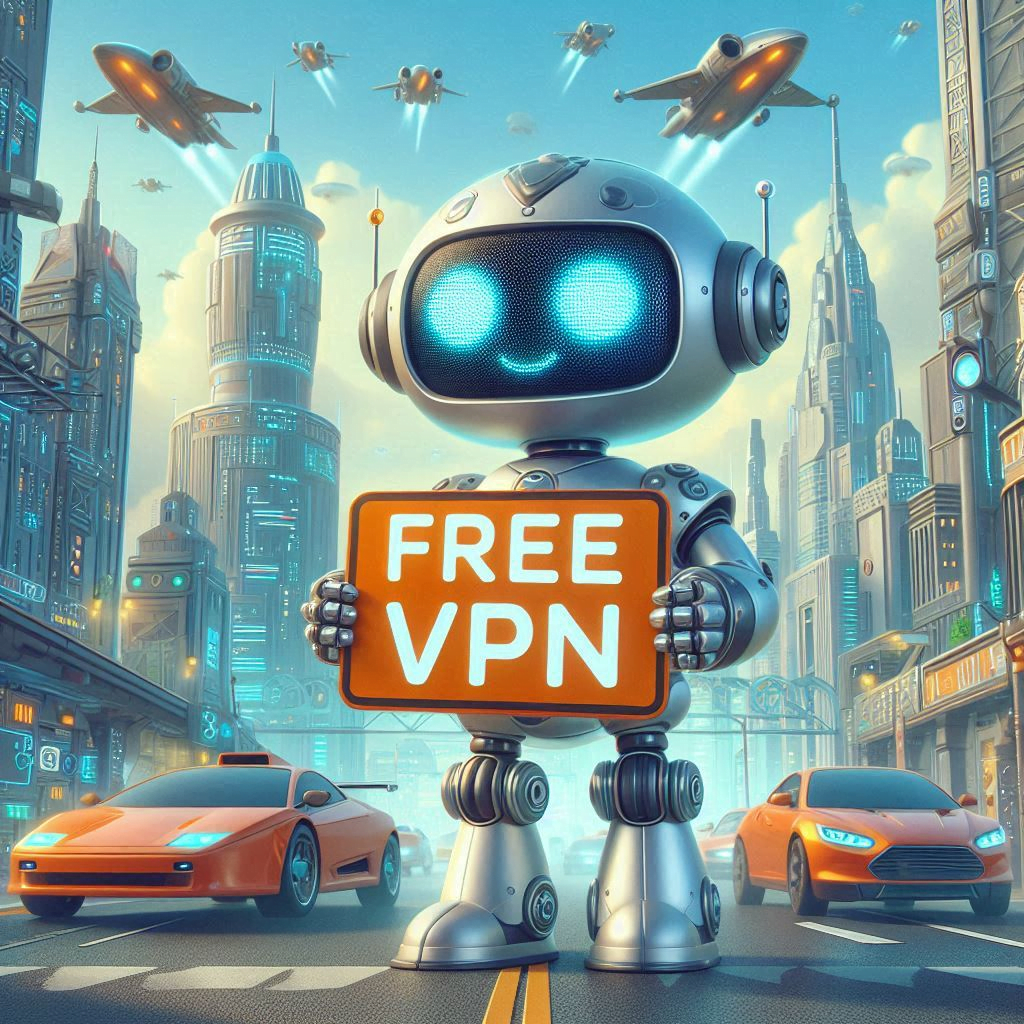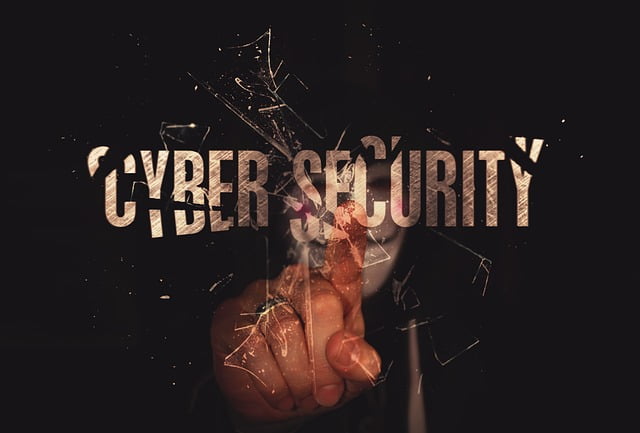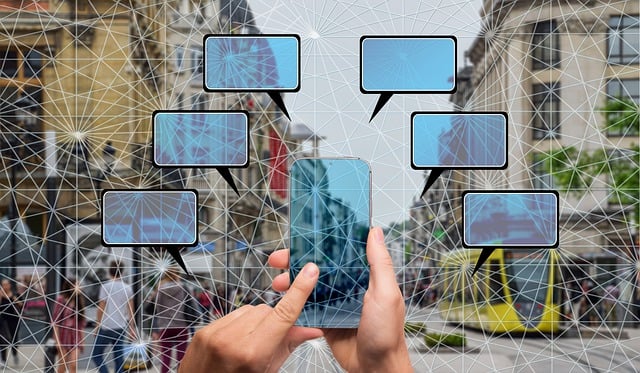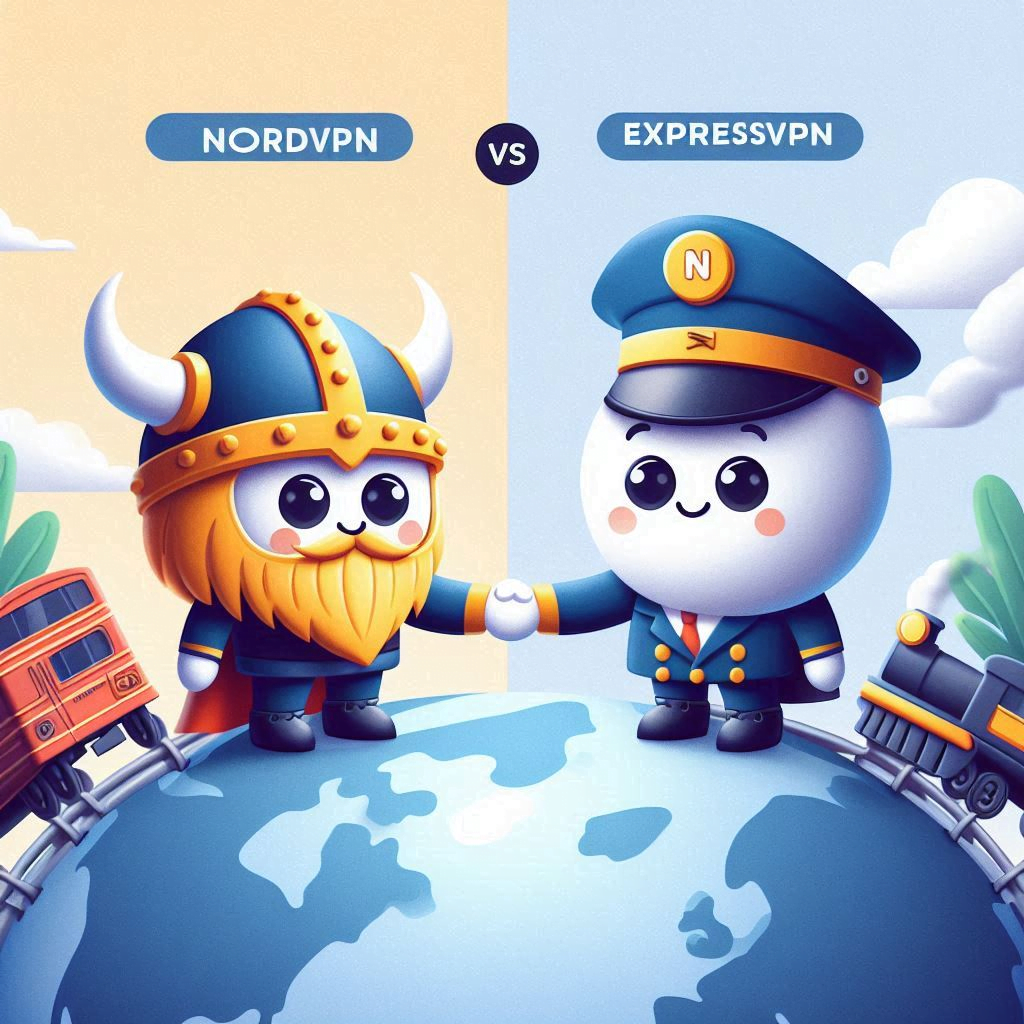Can PayPal Detect and Block VPN Usage? The Truth Revealed!
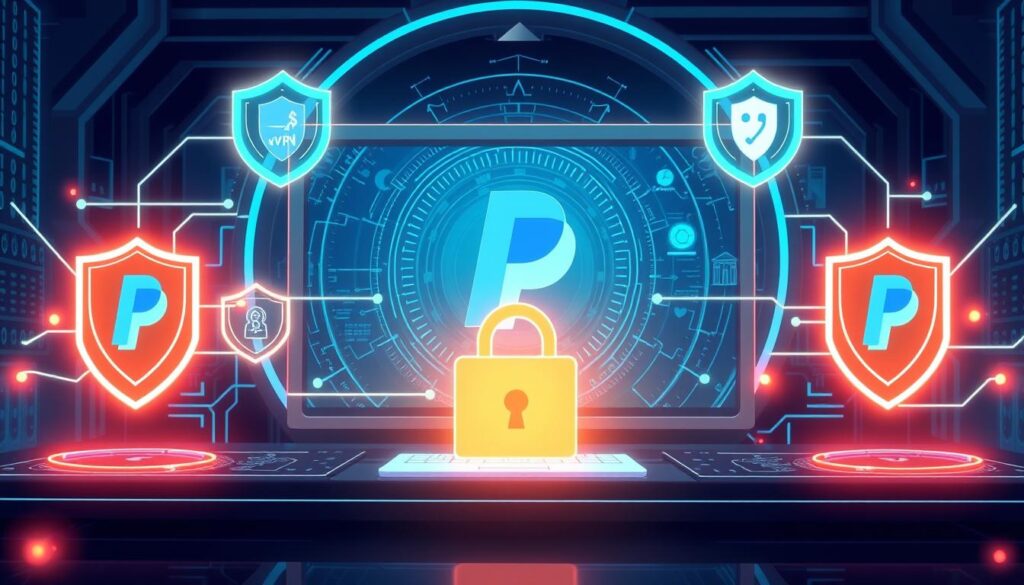
Can you believe more than 30% of all internet purchases globally involve the PayPal payment service? This enormous platform allows many companies and individuals to complete safe online transactions worldwide. But, with more people using virtual private networks (VPNs), many wonder: can PayPal really detect and block VPN usage? Well, that’s the next part you might not expect.
Let us analyze the details in which PayPal safeguards the transactions in this detailed article on the subject. We will also discuss how VPN works with payment system and if PayPal can identify VPN usage. If you frequently utilize PayPal or desire to know more about VPNs or merely need to have more data to feel comforted online, this deep-dive provides the essential data.
Key Takeaways
- Yes, PayPal is advanced in security to enable it to arrest fraud, including VPN usage.
- So, understanding the operational mechanism of VPNs in conjunction with payments and your account is crucial.
- This explains why it is crucial to understand PayPal’s rules regarding the use of VPN since doing it right comes in handy.
- Finding out how other methods of payment can be made safer, for instance, using two-factor authentication or biometric authentication will do a lot.
- It is however important to protect your paypal money by practicing the best ways on making paypal transaction safe, all without the above mentioned VPNs.
Knowing The Security Architecture of PayPal
Fraud Prevention measures that PayPal uses begin with a secure security wall. It safeguards the user transactions from cyber risks. This system has very high security measures such as payment gateway security, monitoring in real time and user authentication.
Basic Security Operating Procedures and Preventive Steps
Similar to any other online business, PayPal employs high levels of encryption such as the TLS and SSL. All these assure that data such as the financial information does not fall into the wrong hands. They ensure that nobody comes near your money you have worked hard to earn without your consent.
Real Time Transaction Monitoring Systems
Well, they monitor transactions, and users’ activities all the time in the case of PayPal. It is advanced in technology to recognizing the fraud within a shortspan. This way PayPal is able to nip issues in the bud.
User Authentication Methods
PayPal also has strong checks to ensure that you’re really you. You may need an access code or touch your fingerprint. This makes your account secure from other people.
For these cybersecurity measures, PayPal aims to be safe for everyone. It also enables you to make fraud prevention payments with convenience and security.
What is a VPN and How Does it Work with Payment Systems?
A VPN is software that ensures your connection to the internet is safe when you are connected to the internet continuously. It masks your IP address and location making your virtual security more secure and anonymous. However, adopting a VPN on the internet payment like PayPal will lead to certain complications.
The main function of a VPN is virtual private network detection, ip address masking, and geolocation spoofing. It achieves this by routing your internet connection through a distant server. This makes it create an appearance as through you are browsing from a different machine all together. Want to bypass certain location? Need to protect your activity on the web or use content which is at times restricted by filters?
| VPN Feature | How it Works | Impact on Payment Systems |
|---|---|---|
| IP Address Masking | The VPN server assigns a new IP address, making it appear as if the user is accessing the internet from a different location. | This can trigger fraud detection systems, as it may look like the user is attempting to access their account from an unusual or suspicious location. |
| Geolocation Spoofing | The VPN server provides a false location, allowing the user to appear as if they are accessing the internet from a different geographic region. | Payment processors like PayPal may use geolocation data to determine the user’s location and assess the risk of the transaction, which could be affected by VPN usage. |
VPN are really beneficial in terms of privacy and also in terms of security. But, at the same time, they may also pose some difficulties if employed together with various payment services such as PayPal. The next step is to establish how these VPNs adapt to the payment systems in an efficient, safe and compliant system.
PayPal VPN Detection: How the System Identifies Virtual Private Networks
PayPal takes the safety of your online payments really seriously. They are clever when it comes to identifying if you’re using a Virtual Private Network (VPN) service. They observe your behaviors and the features of the conducted transactions to identify operations carried through VPN.
IP Address Analysis
PayPal needs your IP address to make sure you are not using a VPN to access PayPal. Again, they consider origin of your IP address and which IP address you frequently shift between. If it seems like you are trying to set yourself in a position where your location cannot easily be discerned, most folks will think you are using a VPN.
Traffic Pattern Recognition
PayPal also considers the flow of your data. They see how quickly your data transmits, how reliably, and what sort of information is passing through. This assist in helping them determine if you are using a VPN.
Behavioral Markers
It also concerns how you behave online, and one company that does exactly that is PayPal. They see if you log in from different locations frequently or if you make payment at unusual hours. Such things can suggest it is possible to be using a VPN.
By employing all these ways to PayPal VPN detection ,they can ensure the safety of your payments . It ensures that the security of your online payments and overall management of risks is number one.
Common Reasons Why People Use VPNs with PayPal
These days, it is very important to keep your online payments safe and secure from unauthorized personals. It has very effective antitheft measures to protect your money at PayPal. Still now, there are some individuals who continue to employ the installation of Virtual Private Networks (VPNs) with PayPal for various purposes.
One very large reason is to preserve your privacy. For those intending to remain unidentified on the Internet, VPNs help conceal the user’s location. This assistance to shield PayPal and the others from tracking to keep their online payment security tight.
The other is to avoid regional restrictions. Features on PayPal may not be available in some locations. A VPN allows for additional service, which helps make the service better.
Likewise, some people connect to VPNs to circumvent censorship or restrictions by their government concerning online payments. In all those areas where PayPal is somewhat difficult to access, a VPN ensures that your transactions are safe and secure. In this way, it is still possible to utilize significant financial services.
However, there are dangers in the use of VPNs with PayPal, & they include the following. Everyone should be aware of threats and guidelines on PayPal on VPN usage. This helps avoid any trouble.
| Reason | Description |
|---|---|
| Privacy Concerns | Desire to conceal true geolocation and protect personal information during online transactions |
| Accessing Region-Restricted Services | Bypassing geographical limitations to access a wider range of PayPal features and functionalities |
| Circumventing Censorship | Utilizing a VPN to securely conduct online transactions in regions with restricted access to digital payment platforms |
“In the digital age, the need for online privacy and security has become paramount, driving some individuals to utilize VPNs when conducting transactions through platforms like PayPal.”
The Legal Framework: PayPal’s Terms of Service Regarding VPN Usage
While utilizing VPN’s with PayPal, the legal regulations require the consciousness. In order to protect it’s payment system PayPal has provided guidelines and rules for it. This is out of risk management measures of anti-money laundering, safety measures of payment gateway and combating fraud.
Policy Guidelines
According to PayPal’s policy, sailing behind the VPN or any tool which masks the identity is prohibited. This rule ensures adherence to law regression in that area as well as prevent abuse of the platform for all sorts of negative deeds.
User Agreement Specifics
In the user agreement of PayPal it states that the accounts held by the firm have the right to be closed or suspended in case of VPN usage. This ranges from freezing of accounts and limiting the access until the problem is resolved.
Compliance Requirements
- The users of PayPal are to provide accurate and up-to-date personal details, such as their real location, so as to stick to the rules of the platform.
- Failure to adhere to these rules means account suspension or restrictions on the number of transactions one can process or complete, depending on the levels of the breach, up to account closure for good.
PayPal’s user must ensure that they have read their terms and conditions and adhere to them to the letter. In this way, users are protected regarding their transactions, they do not experience issues connected with the use of VPN or other security workaround.
Risk Factors Associated with VPN Use on PayPal
It is still necessary not to link a VPN with an online payment service such as PayPal since it involves considerable risks. VPNs have to do with privacy and security solutions. But, they can effectively make PayPal use insecure and cause issues.
Another big concern is that engaging with PayPal from a VPN connection could lead to suspension or postponement of the account. Online payment security and protection from fraudsters have been well embraced by PayPal to seek for such things. The moment a VPN malfunctions, it triggers such mechanisms and your account stands to be closed.
Moreover, using a VPN can cause reduced connection speed, or even complete rejection of a transaction. Some of PayPal’s risk management measures might consider all these actions as having high risk. This can actually mess up your payment, or delay your access to your money or even block it all together.
- Higher chances of account suspensions or temporary hold
- Holes in flow: PayPal security-related transactional interventions
- The probability of detection by PayPal’s watchful and scrupulous monitoring tools Elev
It is important that PayPal users should pay special attention to the risks associated with the use of a VPN as indicated in the following: They should search for better forms on how they are going to secure their online presence and privacy in compliance with PayPal standard.

“Maintaining the delicate balance between privacy and security is paramount when it comes to online payments. Users must be mindful of the potential risks involved in using a VPN with PayPal.”
How PayPal Tracks Suspicious Account Activity
Uniquely in the current world of technology and innovation, fraud and any form of financial crimes pervade the society. These are combatted with robust Cyber security from the PayPal. They employ algorithms and heuristics to detect and then prevent unlawful deeds.
Transaction Monitoring Tools
There are so many things that PayPal’s systems check in real time. They observe the things you purchase, your gadget, and your location. Some of the tools applied involve using machine learning algorithms and specifically, pattern recognition technology to detect such unusual behaviour as using a VPN.
Because PayPal monitor transactions carefully, it can easily detect and block potentials fraud within a short time. This helps keep their anti money laundering compliance optimal.
Risk Assessment Protocols
PayPal also analyses the risk of account activity with stringent security features as well. With their product, they first glance at the IP address, the device profile, and also observe people’s behavior. If you use a VPN they will ask for additional verification or suspend your activity limiting your account.
All these are smart anti money laundering compliance methods employed by PayPal for the protection of its users. They maintain their platform to be very secure.
Impact of Geographic Location on PayPal Services
Location plays an essential role in cases of online payment service providers like PayPal. This is where geolocation spoofing comes in Geolocation spoofing is a simple process of changing a device’s GPS location to another desired position so that it appears to be somewhere other than its real location. Some people attempt to mask their location with something called a virtual private network (VPN).
People may need a VPN connection in order to gain the access to some functions of PayPal, which are unavailable in the given country. For instance, some of the countries have PayPal services or payment options, which the others do not have. This way users can get more out of PayPal while making it look like they are somewhere else.
However, PayPal has good measures on online payments to prevent this. Their virtual private network detection systems monitor behavior and IPs of users. They look for signs of VPN use to ensure safety all the time.
| Potential Consequences of VPN Use with PayPal | Alternatives for Secure PayPal Transactions |
|---|---|
| Account suspension or termination Restrictions on payment options and features Increased scrutiny and monitoring of transactions | Two-factor authentication Biometric verification (e.g., fingerprint, facial recognition) Adhering to PayPal’s terms of service and compliance requirements |
Sometimes, people want to vice around this type of restriction, and thats where a VPN comes into play. However it is crucial for one to consider several factors that might be dangerous during the process. But in turn, users are free to employ other means of security and abide by all of PayPal’s policies. In this way the people can make payment through the internet without any problems and they will be safe.
Alternative Payment Security Methods
Today more people are using digital payment systems because the process is fast. This make beyond doubt, the issue of security in online payment is now more critical than ever before. A popular Web site offering the features of an electronic payment system, PayPal, has developed new measures to protect your money. These bring ways assist fight frauds without exigent a VPN.
Two-Factor Authentication
PayPal 2FA is one of the best security features available in the market. It requires a secondary method of verification such as a code which is sent to your phone for you to be able to log in. This additional measure of security has your account fully protected; even if someone knows your password.
Biometric Verification
Biometric verification is also used in PayPal. This allows you to use fingerprints or face to sign in to your account. It is a secure method of verifying identity thus putting it hard for the con men to penetrate into your account.
These new security steps make online payment security better. They also help users to embrace the payments online securely. Security features of PayPal allow you make payment online while you do not have to apprehend for your money.

“Enhancing security without compromising convenience is the key to building trust in digital payments.”
Best Practices for Secure PayPal Transactions
This is why your online payment must be safe in the twenty first century’s world of internet. When it comes to protection of financial data against cyber threats, these tips will help you use your PayPal wisely. Here are about the measures you should avoid falling victims to PayPal scams;
Enabling Two-Factor Authentication
There is one top tip which will help to protect your PayPal account, and that is to enabled two-factor authentication. The extra layer it provides takes it a notch higher by requiring a code sent to your phone plus your password. It also becomes difficult for hackers to penetrate the account even if they use the password guessed.
Monitoring Account Activity
Monitoring PayPal activity is a wise thing to do. Be on the lookout for anything that does not look familiar. If a user discovers that he found something unusual, he should immediately report it to PayPal to prevent fraud.
Avoiding Public Wi-Fi Connections
Do not use PayPal with public WiFi. These networks are relatively easy for the hackers to siphon. Access your financial information when using a private internet connection only.
| Best Practices for Secure PayPal Transactions |
|---|
| Enable two-factor authentication Monitor account activity regularly Avoid using public Wi-Fi connections Keep your PayPal account information private Use strong, unique passwords for your PayPal account Be wary of phishing attempts and suspicious emails |
By sticking to these tips, you can make your PayPal payments much safer. This helps avoid cybersecurity threats and financial fraud. Always be ready to protect your PayPal account with risk mitigation strategies.
Understanding PayPal’s Anti-Fraud Mechanisms
PayPal is one of the best payments systems that have strict measures against fraud. To safeguard the users it incorporates high levels of cyberspace security and ways of managing risks. These efforts, are backed by the advanced technologies of today.
Machine Learning Systems
PayPal has the ability to use smart machine learning algorithms in order to detect fraud. These systems focus on the behavior of those in question and the things which they purchase. They can identify some unusual actions that may be indicative of fraud, and stall the fraud.
Pattern Recognition Technology
This is in addition to pattern recognition technology. Light makes latent fraud symptoms and constantly enhances its security defenses. This of course serves to safeguard the users’ accounts and transactions.
Security is another area that seems to personally interest PayPal: to this end, it has a number of anti-fraud measures. As web payments increase, PayPal continues to appreciate fraud detection and risk management. This makes its usage to be safe to users across the globe.
What Happens When PayPal Detects VPN Usage
The payment service provider PayPal is dedicated to protecting the security of internet payments. It looks for warning signs – like using a virtual private network (VPN). If they discover VPN usage, they act to safeguard everyone’s best interest.
In essence, when using a VPN, you may find your PayPal account restricted or even shut down. VPNs appear to PayPal as an approach to escape their aggressive measures towards fighting fraud and ensuring online payment security. VPNs do not allow PayPal to see your IP address or your location and therefore cannot easily identify fake transactions.
This article reveals what happens when PayPal identifies VPN usage; you might need to verify your identity. You may need to provide your ID or bank statements, or pass the additional verification that PayPal has for VPN connections. This is important so that the things that you do are real.
Sometimes, PayPal may consider VPN to be such a serious threat that it will close your account with no warning. This mostly occurs when VPN is only a small part of a much bigger issue such as fraud.
The implications that occurred as PayPal identified VPN utilization illustrate just how much they want to protect users. They are interested in maintaining their digital payment system being uninterrupted and trustworthy.
Global Regulations and Cross-Border Transactions
As it is evident from the case of digital payments, managing global rules is extremely important for firms such as PayPal. PayPal is also subjected to anti-money laundering (AML) and other standards for cross border payments.
Anti-money laundering remains a great concern for PayPal and it is hard for the company to meet the standards set across the globe. They require sound structures to monitor and report on the utilization of funds to prevent nasty business. This also influences how they deal with Virtual Private Networks, VPNs, a way of hiding the source of money .
Another is that PayPal too has interact with numerous payment gateway measures and other online payment precautionary measures from different area. Due to centralisation of these rules, some PayPal services may be difficult to access or cannot be accessed in some regions.
| Region | Key Regulations | Impact on PayPal |
|---|---|---|
| European Union | EU Anti-Money Laundering Directive (AMLD) General Data Protection Regulation (GDPR) | Strict compliance requirements, data privacy regulations |
| United States | Bank Secrecy Act (BSA) Office of Foreign Assets Control (OFAC) sanctions | Extensive AML monitoring, restricted transactions with sanctioned entities |
| China | Strict capital controls Regulatory oversight on cross-border payments | Limited PayPal functionality, compliance with local financial regulations |
Ensuring that cross border payment is easy to make is always a challenge PayPal strives to achieve it without compromising the safety of the payment. They do this by adherence to anti-money laundering compliance and payment gateway safeguards. This balance is important when maintaining PayPal’s global operations as being trusted and secure.
Tips for Maintaining Account Security Without VPNs
Despite the fact that VPN makes secure the internet connections and thus secure online transactions then there are other measures one can take to ensure the PayPal account is safe. It is better to rely on built-in security features provided by PayPal alongside following common recommendations. This means that if you want to protect your personal data from tracking and spying, you don’t need a VPN.
Security Alternatives
Two-factor authentication or biometric identification is also employed in PayPal. These features make additional security to your account. They guarantee that if for instance someone obtains your login information, he or she cannot gain access.
Protection Methods
Just to begin with, PayPal security measures are something that customers can implement into the process. It is also important to follow the recommended internet payment security measures. This involves monitoring your account balance, using reasonable precautions against being the target of a phishing scam you come across, and ensuring that your devices are up to date, and your software has the latest patches. In this manner, you can facilitate your PayPal account without a VPN, as all those things mentioned above are safe to do.
FAQ
Can PayPal Detect and Block VPN Usage?
Well, it does; PayPal is capable of identifying and blocking VPN traffic just as effectively as any other payment service provider. They employ IP address examination and traffic identification techniques that help them to identify highly suspicious VPN activity.
How Does PayPal’s Security Infrastructure Work?
Security of PayPal has many folds. These are: encryption, real time monitoring, and strong user authentication. Some of these are to protect accounts and other to deter fraudulent activities.
What is a VPN and How Does it Interact with Payment Systems?
A VPN is an approach of setting up a secure Internet connection. It conceals the user’s IP address and location. It is beneficial in giving the payment systems like PayPal privacy but it creates concern at the same time.
How Does PayPal Detect the Use of VPNs?
After that, PayPal already checks IP addresses and traffic patterns to identify VPN usage. According to the study, they search for patterns that are associated with VPN to arrive at such results.
Why Do People Use VPNs with PayPal?
Customers follow VPN service for confidentiality or to acquire limited services. However, it can also lead to a violation of the regulations implemented by PayPal, itself.
What Are the Legal Implications of Using VPNs with PayPal?
Like any other service provider PayPal also has rules regarding the use of VPN. Violation of these can result to account suspensions or other related punishments.
What Are the Risks Associated with VPN Use on PayPal?
Using a VPN on PayPal may result in such problems with the account or additional identification checks. PayPal monitors for activities associated with VPNs in an attempt to fight fraud.
How Does PayPal Track Suspicious Account Activity?
Tools are used to monitor such activities PayPal uses tools to detect such activities. They use transaction data to identify anomalies in behaviours to check for fraud.
How Does Geographic Location Affect PayPal Services?
It is important that you know PayPal services may be impacted by your location. Some of the features might not be available depending with the areas of coverage. Accessing these with VPN’s can draw PayPal’s attention to them.
What Alternative Payment Security Methods Does PayPal Offer?
You can identify PayPal security features that include the following, namely, two-factor authentication and identification using biometrics. This preserves the safety of transactions in a way that doesn’t require VPNs with these methods.
What Are the Best Practices for Secure PayPal Transactions?
To make PayPal transactions safe, keep you account safe and know risks. Specifically, to protect your identity, the use of PayPal’s security features and the customers’ awareness of PayPal’s policies.
How Do PayPal’s Anti-Fraud Mechanisms Work?
On the other hand, PayPal has its methods of fraud detection which is a speciality of ML and pattern recognition. Such tools assist in tracking and combating fraud, such as that connected with VPNs.
What Happens When PayPal Detects VPN Usage?
They may limit you or ask for more identification when they sense a VPN connection. The action taken depend with the VPN effects in PayPal security.
How Do Global Regulations Affect PayPal’s Policies on VPN Usage?
PayPal has to adhere to the laws and restrictions from the entire world. These rules apply to their VPN policies to secure cross border transactions.
What Tips Can Help Maintain Account Security Without VPNs?
Employees should adopt PayPal’s security features such as, two-factor authentication. It has clear user interface, and users should update their accounts often and employ PayPal security measures.
Loading newsletter form...


